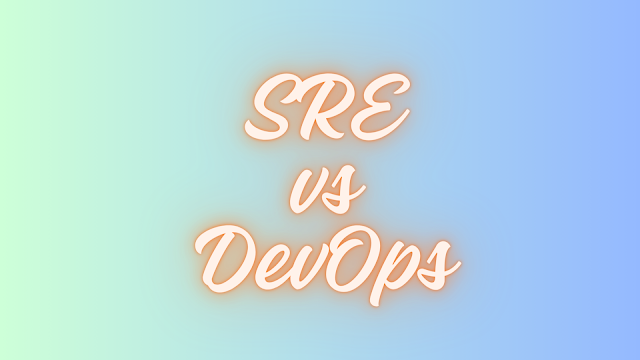Decoding the Tech Maze: Demystifying SRE and DevOps for Everyone
Introduction:
In the ever-evolving world of technology, two terms often thrown around are Site Reliability Engineering (SRE) and DevOps. They sound fancy, but what do they really mean? Are they the same thing, or do they have their own unique roles in the tech landscape? Let's break it down in simple terms.
Understanding DevOps:
DevOps, short for Development and Operations, is like a magical bridge that connects software development with IT operations. Imagine it as a team of wizards ensuring that the code developers create not only works flawlessly but also smoothly integrates with the infrastructure it runs on.
In simpler terms, DevOps is all about teamwork and collaboration. Developers and operations folks come together, share responsibilities, and work hand-in-hand to build, test, and deploy software. The goal? Faster and more reliable delivery of applications.
Meet the SRE Heroes:
Now, enter the Site Reliability Engineer, or SRE. If DevOps is the magical bridge, SREs are the guardians of that bridge. They focus on making sure that the software runs reliably and efficiently once it's out in the wild.
SREs wear many hats. They're part developers, part operations experts, and part detectives. Their mission is to prevent and solve issues before they impact users. Imagine them as the superheroes of the tech world, constantly monitoring, tweaking, and optimizing to keep everything running smoothly.
The Main Differences:
- Focus and Specialization:
DevOps: Collaboration and communication between development and operations teams.
SRE: Reliability, performance, and automation in production environments.
- Goals:
DevOps: Faster and more efficient software development and delivery.
SRE: Reliability, availability, and performance of applications in production.
- Responsibilities:
DevOps: Shared responsibilities across development and operations teams.
SRE: Focus on reliability, with an emphasis on proactive measures to prevent issues.
- Mindset:
DevOps: Culture of collaboration, communication, and continuous improvement.
SRE: Reliability is paramount, and automation is a key tool for achieving it.
Conclusion:
In simple terms, DevOps is the magical team that makes the software, and SREs are the guardians ensuring that the magic stays strong even after the software is out in the world. DevOps is about breaking down silos and fostering collaboration, while SRE is about ensuring the reliability of the applications.
So, next time you hear someone talking about DevOps and SRE, remember it's not just tech jargon – it's about teamwork, reliability, and making the digital world a better place, one code commit at a time.




Comments
Post a Comment